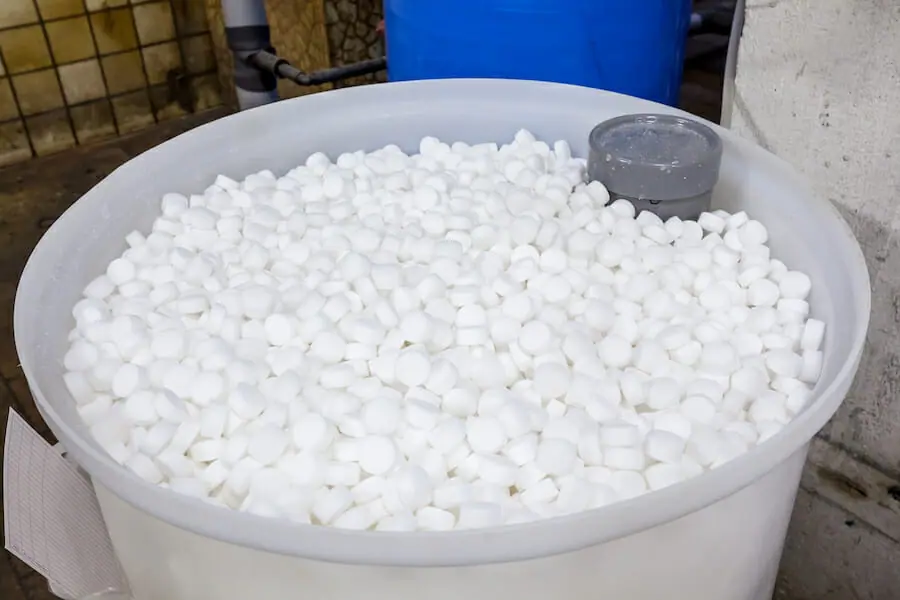
If you own a water softener, you already know how important it is to maintain it for optimal performance. But did you know that choosing the best salt for your water softener can significantly impact its efficiency and longevity? Whether you’re new to water softeners or looking to optimize your system, understanding the different types of salt and their benefits is crucial. In this guide, we’ll explore the various options for water softener salt, how to select the best one for your system and tips for maintaining your water softener.
Why Choosing the Right Salt Matters
The salt you use in your water softener isn’t just a minor detail—it’s a key component of the entire softening process. Water softeners work by removing hard water minerals like calcium and magnesium through a process called ion exchange. Salt acts as the regenerating agent, flushing these minerals out of the resin beads inside your system so they can continue softening your water.
Using the wrong salt for your water softener can lead to:
- Reduced efficiency
- Increased maintenance
- Potential damage to your system
- Problems with water quality
By choosing the right type of salt, you’ll not only improve your system’s performance but also extend its lifespan.
Types of Water Softener Salt
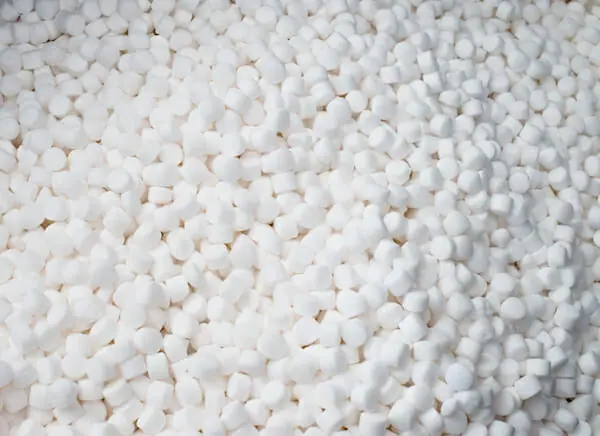
When selecting salt for your water softener, it’s important to understand the differences between the available options. Each type has its advantages and drawbacks, depending on your water quality and softener system.
1. Rock Salt
Rock salt is one of the most commonly used types of water softener salt. It’s mined from underground salt deposits and appears as large, coarse crystals.
Pros:
- Affordable and widely available
- Suitable for areas with moderate water hardness
Cons:
- Contains more impurities compared to other salt types
- May lead to more frequent maintenance due to sediment buildup in the brine tank
Best For: Homeowners looking for a budget-friendly option who don’t mind occasional tank cleaning.
2. Solar Salt
Solar salt is created by evaporating seawater using sunlight. It’s available in crystal and pellet forms, making it a popular choice for water softeners.
Pros:
- Naturally derived and environmentally friendly
- Contains fewer impurities than rock salt
- Easy to dissolve in water
Cons:
- Slightly more expensive than rock salt
- Not as effective for homes with extremely hard water
Best For: Homes with moderately hard water and a preference for cleaner, eco-friendly options.
3. Evaporated Salt
Evaporated salt is the purest form of water-softener salt. It’s produced by heating salt water to remove moisture, leaving behind highly concentrated salt crystals.
Pros:
- High purity level, minimizing tank residue
- Ideal for systems that require low-maintenance salt
- Extremely effective for hard water
Cons:
- The most expensive option
- May not be necessary for homes with mild water hardness
Best For: Homes with very hard water or those looking for a low-maintenance, highly efficient solution.
4. Potassium Chloride
Potassium chloride is an alternative to traditional salt and is often chosen by those seeking a low-sodium option for water softening.
Pros:
- Ideal for individuals on low-sodium diets
- Eco-friendly and reduces sodium discharge into the environment
- Works well in most water softeners
Cons:
- Significantly more expensive than traditional salts
- May require adjustments to the water softener settings for optimal performance
Best For: Health-conscious individuals or areas with strict environmental regulations.
Factors to Consider When Choosing the Best Salt for Your Water Softener
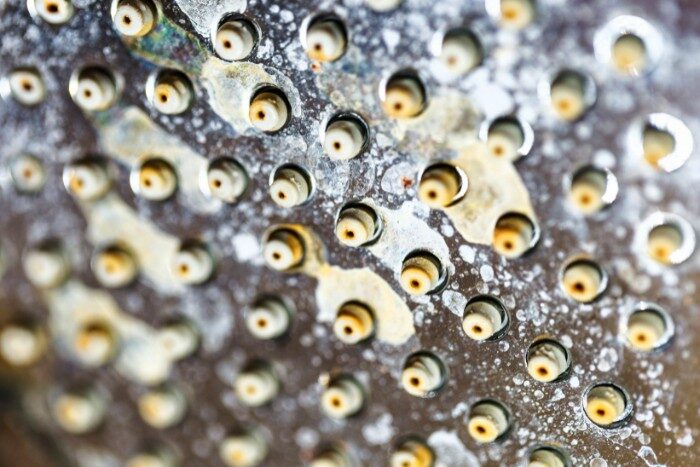
Selecting the right salt involves more than just picking the first option you see on the shelf. Consider these factors to make the best choice for your needs:
1. Water Hardness Levels
The level of hardness in your water determines how much work your softener needs to do. Homes with extremely hard water may benefit from evaporated salt due to its high purity and effectiveness.
2. System Manufacturer Recommendations
Always check your water softener’s manual for specific recommendations. Some systems work best with certain types of salt, and using the wrong one could void your warranty.
3. Maintenance Requirements
If you prefer low-maintenance options, evaporated salt or solar salt may be ideal. Rock salt, while affordable, can lead to more frequent cleaning due to impurities.
4. Health Considerations
For those on low-sodium diets, potassium chloride offers a viable alternative to traditional salt, providing the same water-softening benefits without adding sodium to your water supply.
5. Environmental Impact
Eco-conscious homeowners may prefer solar salt or potassium chloride, both of which are more environmentally friendly options compared to rock salt.
Maintaining Your Water Softener
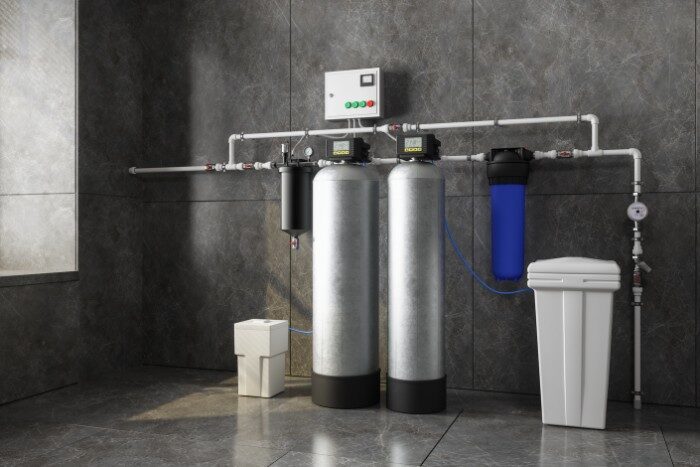
Once you’ve chosen the best salt for your water softener, proper maintenance is essential to keep the system running smoothly. Here are some tips to ensure your system stays in top condition:
1. Prevent Salt Bridging
Salt bridging occurs when salt in the brine tank hardens into a crust, preventing proper regeneration. To avoid this:
- Don’t overfill the brine tank.
- Use high-quality salt designed for water softeners.
- Break up any hardened salt with a broom handle or similar tool.
2. Clean the Brine Tank
Regularly clean your brine tank to remove any buildup or sediment. A thorough cleaning every 6–12 months can prevent clogs and ensure optimal performance.
3. Monitor Salt Levels
Check the salt levels in your brine tank at least once a month. Refill the tank before it runs completely empty to avoid disruptions in softening.
4. Inspect for Clogs
Look for blockages in the brine line, injector, or drain line. Clearing these clogs promptly can prevent bigger problems down the line.
FAQs About Water Softener Salt
Q: Can I mix different types of water softener salt?
A: While it’s not ideal, mixing salts is generally safe as long as both are compatible with your system. However, mixing may lead to increased sediment buildup, requiring more frequent cleaning.
Q: How much salt should I use in my water softener?
A: The amount of salt depends on your water softener’s size and usage. Typically, the brine tank should be kept about half full of salt, with enough water to cover it.
Q: Can I use table salt in my water softener?
A: No. Table salt contains anti-caking agents and other additives that can harm your system. Always use salt specifically designed for water softeners.
Q: How often should I replace the salt in my water softener?
A: Refill the brine tank as needed, typically once every 4–6 weeks, depending on your water usage.
Choosing the Best Salt for Your Water Softener
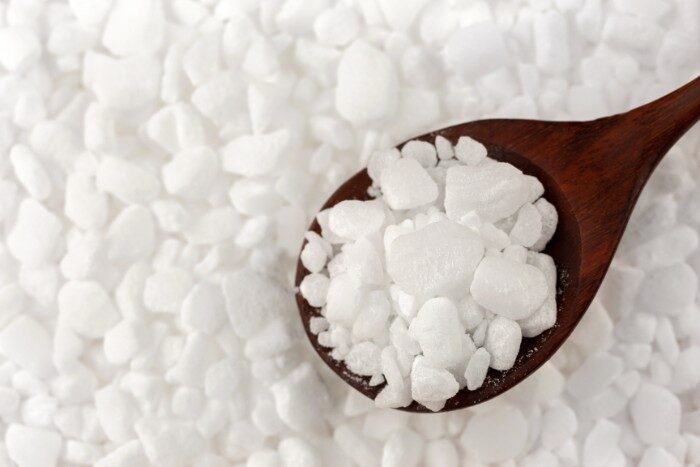
The type of salt you choose for your water softener can have a significant impact on its efficiency, maintenance needs, and overall performance. By understanding the differences between rock salt, solar salt, evaporated salt, and potassium chloride, you can make an informed decision that suits your home’s water needs.
For optimal results, always follow your system manufacturer’s recommendations and prioritize high-quality salt. Regular maintenance, such as cleaning the brine tank and monitoring salt levels, will ensure your water softener continues to provide the benefits of soft water for years to come.

If you’re unsure about which salt to choose or need professional advice, contact Clear Water Concepts today. Our team of experts can help you select the best salt for your water softener and ensure your system is running at its best.


